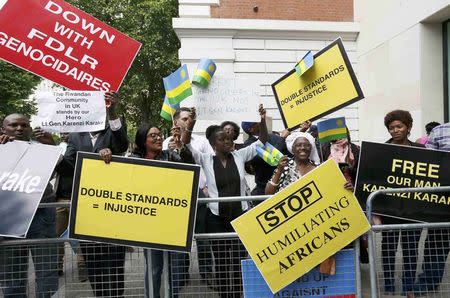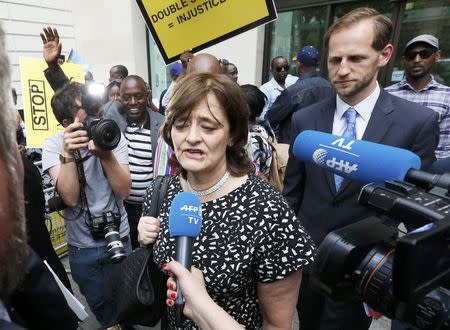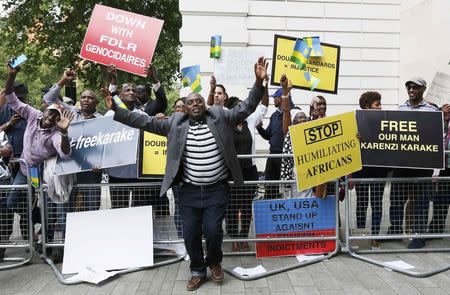Rwandan spy chief tells UK court he will fight extradition to Spain
LONDON (Reuters) - Rwanda's intelligence chief Karenzi Karake told a London court on Thursday he did not consent to being extradited to Spain, where he is accused of engaging in reprisal killings after the east African country's 1994 genocide. British police arrested Karake, 54, at Heathrow airport on Saturday on a warrant issued in Spain and have since held him in custody. Dressed in a green and yellow track-suit, Karake acknowledged the cheers of his supporters who packed the public gallery at Westminster Magistrates' Court. Asked whether he consented to extradition, Karake said from the dock: "I do not." Cherie Blair, the barrister wife of former Prime Minister Tony Blair, advised Karake's defence team as they successfully applied for bail ahead of a full extradition hearing in October. District Judge Quentin Purdy set conditions on bail including a one million pound surety, restrictions on Karake's movements and the surrender of his passport. Rwanda's foreign minister has described the arrest as an "outrage" and accused Western countries of siding with those behind the genocide, particularly the "genocidaires" from the extremist FDLR Hutu militia. About 800,000 people were butchered in three months of ethnic killings in 1994, most of them from Rwanda's Tutsi minority as well as moderates from the Hutu majority. The genocide was halted by the Rwandan Patriotic Front (RPF), then a rebel force led by Paul Kagame, who is now president. Karake, director general of Rwanda's National Intelligence and Security Services, was among 40 military and political leaders indicted by a Spanish judge in 2008 over alleged RPF reprisal killings of hundreds of thousands of civilians, including some Spaniards. (Reporting by Estelle Shirbon; editing by Stephen Addison)

 Yahoo News
Yahoo News 


